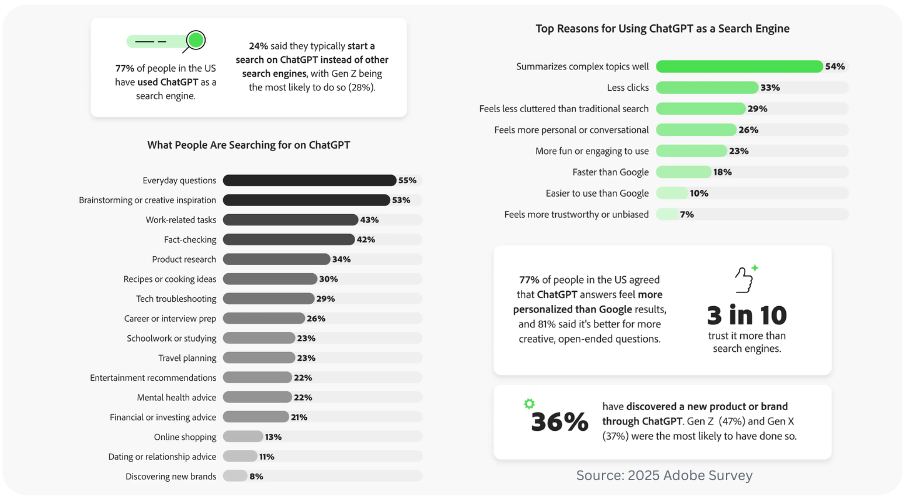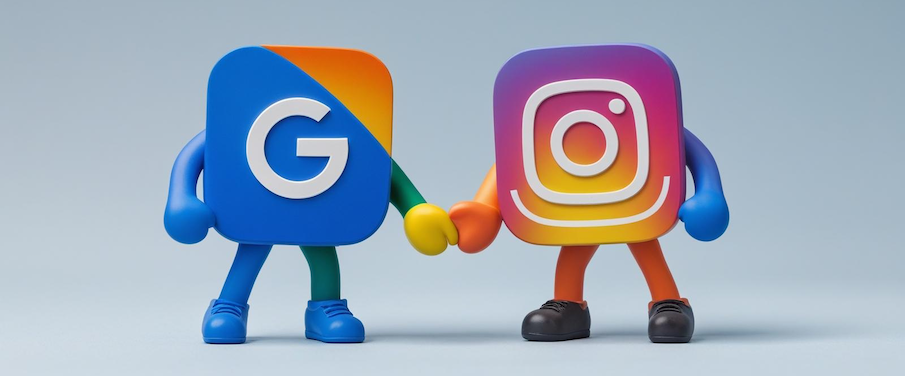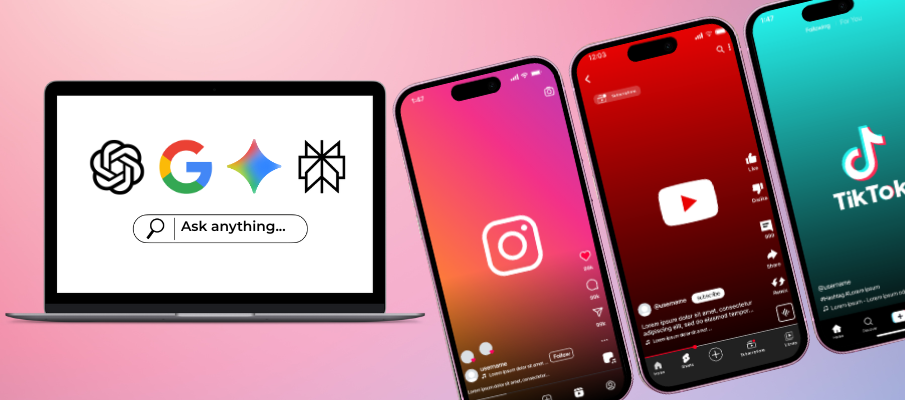Where Travellers Go to Find, Plan and Book in 2025
By Tomahawk on
Definition of a Search Engine in 2025
In 2025 “search engine” doesn't just mean Google. The definition of a search engine is now about how travellers find trust, inspiration, and the confidence to book. Whether that’s through a 30-second TikTok, a Google AI summary, or an AI chat conversation that builds their itinerary - search has become more conversational and human.
Today, “search” happens everywhere. And for tourism businesses, that means you need to know where your potential guests are looking. Let's have a look at where they are searching, and the typical behaviour of different generations.
Google’s Not Gone But It's Evolving

Google still dominates much of the discovery and booking process, but how people use it has evolved. With AI Overviews, voice search, and generative tools like Gemini built right in, travellers are asking Google full questions instead of keyword strings:
“What are the best family-friendly activities near Rotorua in July?”
“Is there a boutique hotel in the Bay of Islands with a spa and ocean views?”
Instead of showing a list of blue links, Google now provides conversational summaries, with top recommendations and booking options drawn from multiple sites. If your website isn’t written to answer questions in a natural, conversational tone, you risk being skipped over by the AI summary entirely.
Search Engine Optimisation (SEO) has evolved into Answer Engine Optimisation and Generative Engine Optimisions - the art of showing up in AI-driven answers, not just rankings. This article provides a great overview on the evolution of content.
Social Search: TikTok, Instagram, Pinterest & YouTube

For younger and mid-life travellers, the search box looks less like Google and more like a social app.
- TikTok has become Gen Z’s go-to “visual search engine.” They don’t just look for what to do, they want to see it. A search for “hidden waterfalls in New Zealand” brings up reels, drone shots and local creators sharing firsthand tips.
- Instagram acts as a planning tool for Millennials and Gen X, who use it to save posts, follow regional hashtags, and visually map out trips. The “Save” feature is the new bookmark.
- Pinterest has re-emerged as the quiet powerhouse for trip planning. It’s where travellers (especially women) build moodboards of dream destinations, itineraries, and accommodation ideas. Its visual search and “shoppable pins” now link directly to booking pages, blending inspiration with conversion.
- YouTube continues to be the pre-trip research hub for all generations. Ideal for long-form guides, road trip inspiration, and honest reviews.
Learn more about how to target the different generations, along with "Gen Z and the rise of social Search".
Conversational Search: ChatGPT, Perplexity & Gemini

In 2025, a growing number of travellers are planning entire itineraries using AI chat tools. Instead of sifting through hundreds of websites, they’re having a conversation:
“Create a 5-day road trip itinerary from Auckland to Napier focused on wineries and scenic stops.”
AI tools like ChatGPT, Perplexity, and Gemini now act as digital travel agents by cross-referencing reviews, maps, and travel times to provide tailor-made itineraries. According to an Adobe survey in 2025, 77% of people in the US have used ChatGPT as a search engine with 23% of people using it for travel planning (see diagrams below).
And because these tools pull from multiple sources (including your website content), having structured, accurate, and helpful information online is more vital than ever. Find out how with these 8 tips on how to write content for AI search.

What It Means for Your Tourism Businesses
Travellers are blending social, AI, and traditional search in ways that are personal and ever-changing. To stay visible, your tourism business needs to:
- Write content that answers questions conversationally.
- Show, don’t just tell. Use video content on TikTok and Instagram because travellers want to see the experience.
- Optimise for AI tools. Keep your website content clear, up to date, and semantically rich so chatbots can find and quote it.
- Be discoverable across platforms. From hashtags to Google Business listings, visibility comes from consistency.
- Don't just ask “How do I rank on Google?”, also question “How do I show up where my customers are searching, wherever that may be?”
At Tomahawk, we help tourism businesses keep you up to date with the latest in SEO techniques. From AEO to social and AI search optimisation, our team knows how to make your tourism brand discoverable across every platform travellers are using in 2025. If you’d like support making sure your business shows up where it matters most, get in touch with our team and let’s chat about your SEO strategy.
Read more articles
How to Write Content for AI Search
By Tomahawk |

The way people find information online is changing, and your content needs to adapt with it. AI-powered search tools like ChatGPT, Google’s AI Overviews, Gemini, and Perplexity are new ways for travellers to help them research...
Google and Instagram are Friends
By Tomahawk |

Big news from the digital world: Instagram content from Business accounts is now being indexed and displayed more prominently in Google search results. In other words, your Instagram photos, Reels, and posts have a much better...

